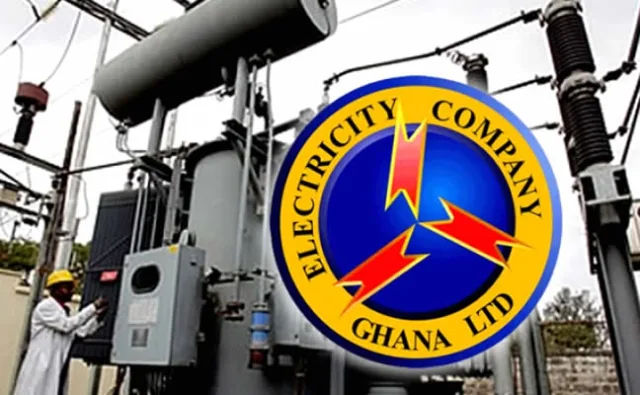Dr. Kwabena Donkor, a former Minister of Power, has expressed his growing concerns over the financial challenges currently facing the Electricity Company of Ghana (ECG).
During a media interview on Wednesday, September 18, Dr. Donkor called for urgent reforms within the company, which he argues has been battling financial instability for an extended period.
Dr. Donkor, who served as Minister of Power under the National Democratic Congress (NDC) administration, emphasized that ECG’s troubles are not a recent phenomenon, stating that the company has been facing financial issues for years. He drew attention to the need for a “fundamental rethink” regarding how the company is managed and funded.
“This situation did not just happen overnight. ECG has been bleeding for a while. Indeed, ECG can be likened to the woman with the bleeding problem in the Bible, and it’s been going on for a while.”
Dr. Kwabena Donkor, Former Minister of Power
ECG has long been grappling with challenges related to operational inefficiency, debt collection, and financial sustainability. In August 2024, the company collected only 42% of its expected revenue, a figure Dr. Donkor described as “a serious indictment of the whole ECG system.”
Dr. Donkor lamented the inability of the company to collect its revenues, stating that such inefficiencies have crippled the ECG’s operations, preventing it from maintaining financial health.
“If you are collecting 42 percent of what you are supposed to collect, there is no way that an entity can survive without drastic structural reform,” he said, calling for an immediate overhaul of the ECG’s operational framework. Dr. Donkor has consistently advocated for reforms within the ECG.
He believes that any significant changes should focus on improving revenue collection, reducing inefficiencies, and securing a sustainable financial model for the company’s future.
Call for Restructuring: Investment and Privatization

In his remarks, Dr. Donkor also hinted at the possibility of revisiting some of the approaches undertaken during the NDC administration, particularly the idea of privatization.
He pointed out that the previous administration’s decision to explore private sector involvement in the management of ECG was one option worth reconsidering.
He noted that investment into ECG was essential to revamping the company’s operational efficiency and improving its financial standing.
However, he cautioned that any discussions around privatization or significant restructuring would require a national consensus, as these decisions could have long-term implications for Ghana’s energy sector.
“This is not the time for the government of the day to come up with new proposals. It’s too close to the elections, and there needs to be a national conversation on how to best address the ECG’s problems.”
Dr. Kwabena Donkor, Former Minister of Power
Dr. Donkor’s comments come amid heightened concerns about ECG’s financial health, particularly following a recent warning from the Public Utilities Regulatory Commission (PURC).
The PURC has highlighted the company’s deteriorating financial position, with fears that it could soon face bankruptcy if urgent reforms are not implemented.
In a letter to the Energy Minister, Dr. Ismael Ackah, the Executive Secretary of the PURC, outlined how ECG’s financial troubles are not only threatening its survival but also putting pressure on other key institutions within Ghana’s energy supply chain.
These include the Volta River Authority (VRA), the Ghana Grid Company (GRIDCo), and the Bui Power Authority, which rely on ECG for the distribution of power and subsequent revenue flow.
Dr. Donkor emphasized that the problems facing the ECG are interconnected with the broader energy sector, and any solution must take into account the impact on these institutions.
“If ECG fails, it will have a ripple effect across the entire energy sector. This includes companies like GRIDCo and VRA, which are critical to the country’s power supply.”
Dr. Kwabena Donkor, Former Minister of Power
For Dr. Donkor, the answer lies in a collaborative, national approach that brings together stakeholders from across the political spectrum, the energy industry, and the private sector to chart a new course for ECG.
He stressed that any reforms must be comprehensive and not merely short-term fixes designed to address immediate financial challenges.
READ ALSO: Wizkid Finally Releases Snippets of ‘Morayo’ Album



















